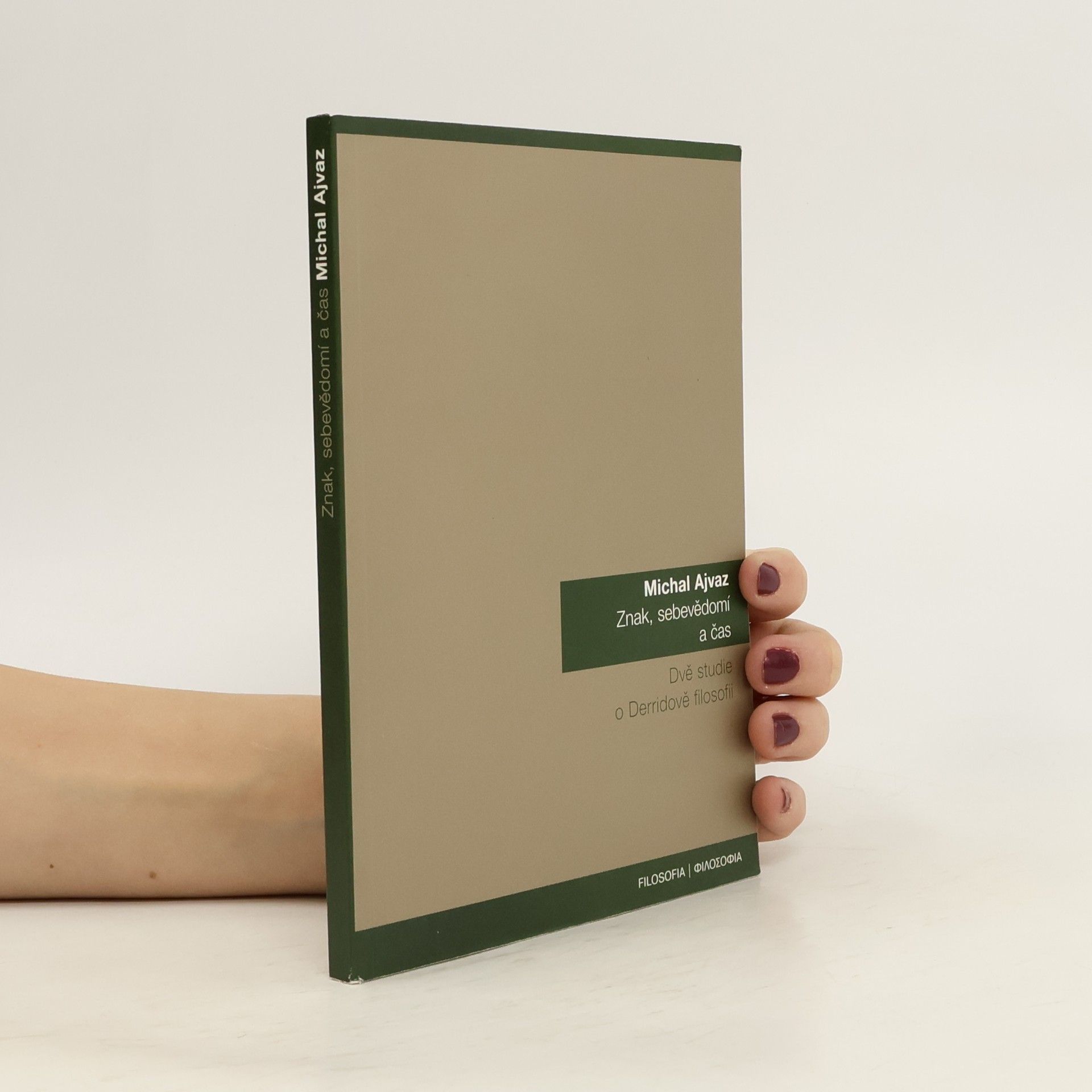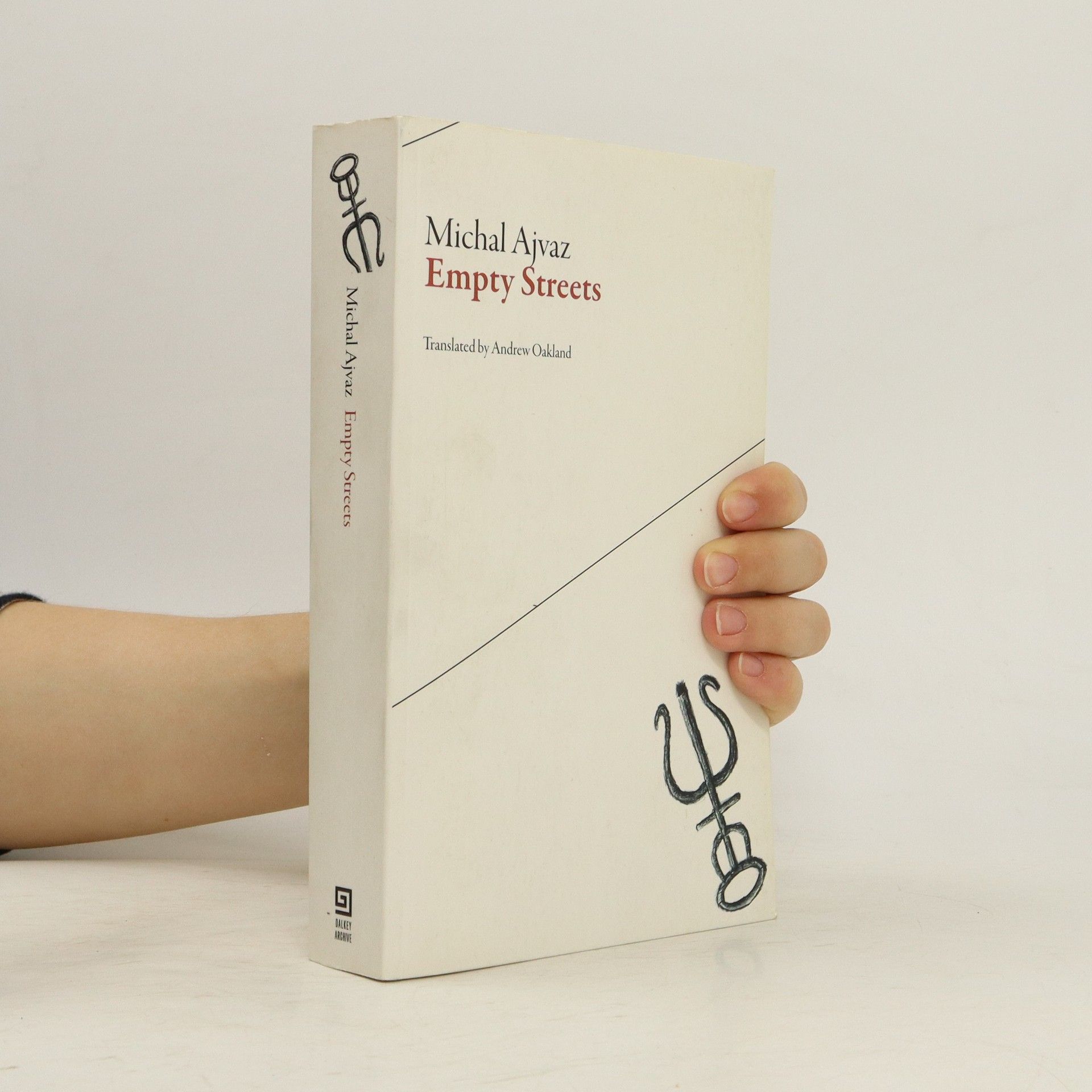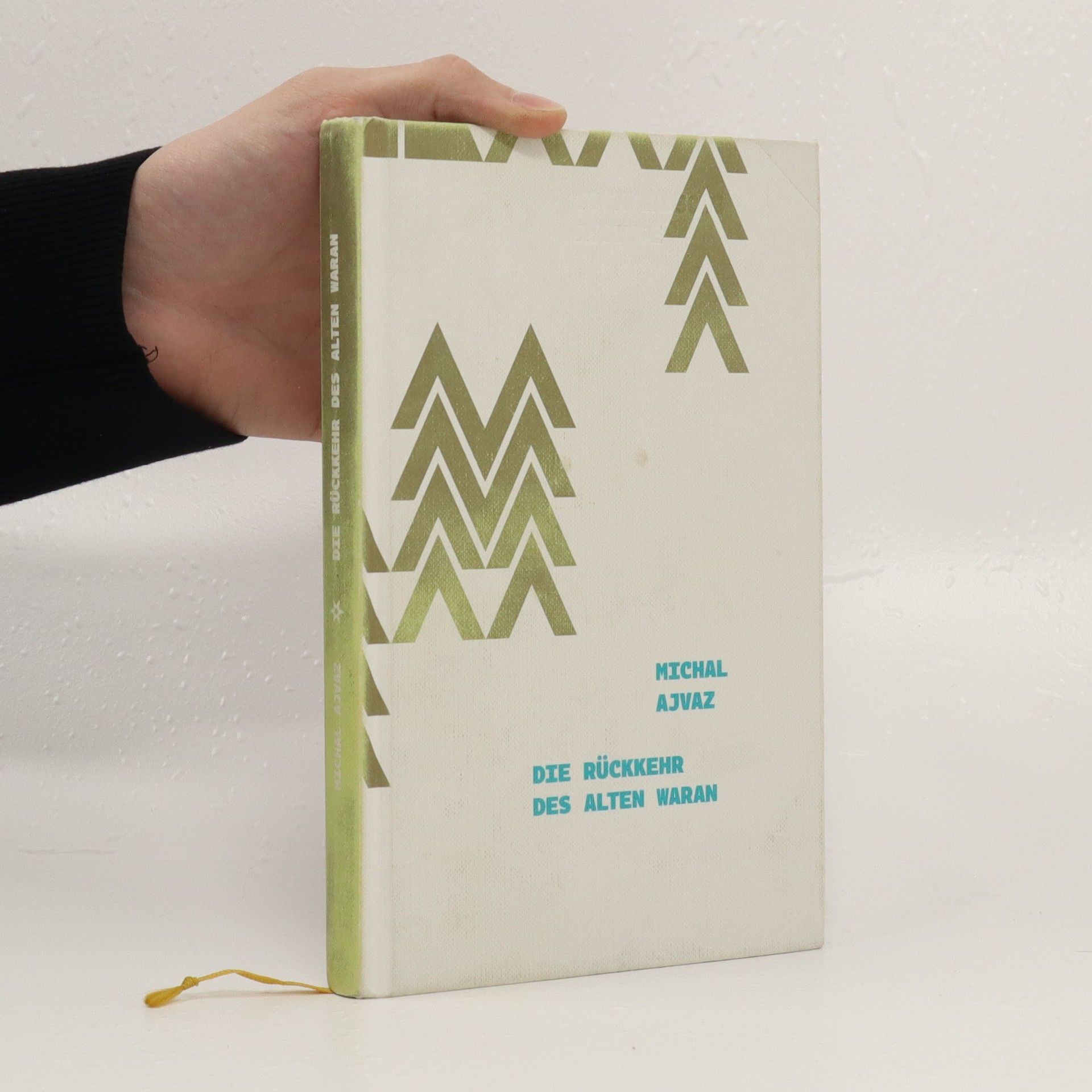Was macht eigentlich einen magischen Realisten, Phantasten, Surrealisten aus? Auf jeden Fall handelt es sich dabei um Schlüsselfiguren der tschechischen Literatur nach 1989. Als Philosoph neuer Welten, Denker des Möglichen und Unmöglichen nimmt Ajvaz die Einflüsse des Surrealismus, der absurden Grotesken und Experimente in sich auf. Als Reisender jenseits der Grenzen der Wirklichkeit. Als Autor all jener, die mit geschlossenen Augen träumen und dichten. Seine Literatur ist gleichzeitig Theater, Malerei und Film – und macht der Forderung „Alle Macht der Phantasie!“ alle Ehre.
Michal Ajvaz Bücher
Michal Ajvaz ist ein tschechischer Romanautor, Essayist, Dichter und Übersetzer, dessen Werk die Grenzen von Realität und Wahrnehmung erforscht. Mit reicher Sprache und durchdachten Metaphern zieht er den Leser in Welten, in denen Philosophie, Kunst und Alltag verschmelzen. Seine Schriften befassen sich häufig mit Fragen der Identität, des Gedächtnisses und der Beschaffenheit der Wirklichkeit, oft mit Bezug auf literarische und philosophische Traditionen. Ajvaz' Schaffen wird für seine intellektuelle Tiefe und seinen originellen künstlerischen Ansatz geschätzt.







Empty Streets
- 470 Seiten
- 17 Lesestunden
In a junkyard on the outskirts of Prague, a painter stumbles across a mysterious wooden object. As he begins to notice the object s strange shape reproduced in various places around the city, he realizes that it holds the key to uncovering the truth about the recent disappearance of a young girl. His attempts to understand the meaning of the object bring him into contact with an array of characters, and the stories they tell him widen the vortex of uncertainty that the object has opened. Will the increasingly intricate web of clues eventually lead him to the truth? "Empty Streets" is both a thrilling fantasy and a philosophical meditation on the search for meaning in modern life."
In a small village on the southern coast of Crete, the narrator meets a young man who tells him a history of his journey which took him from Prague as far as to the Libyan sea. It is a voyage to uncover mysterious deaths of two brothers: one was murdered during the ballet performance, the body of the second one was found by Turkish fishermen at the Asia Minor shores. On the move, the amateur detective is accompanied by one of the brothers ́ girlfriend. They have to work out a lot of traces, clues and rebuses - seemingly meaningless clusters of letters in the picture of a Hungarian painter, fragments of words created in the sea by bodies of phosphorescing worms, puzzling shapes of jelly sweets found in a small shop in Croatia or the plot of an American sci-fi thriller movie, which the protagonists watch in the cinema in Rome suburb. Such leads send the heroes from town to town, the plot takes part on night trains and many places in Europe - in Bratislava, Budapest, Lublan, on the islands of Mykon and Crete... With the search for the murderer of both the brothers many other stories are interconnected, and they take the readers to even more distant places of the Earth: Moscow, Boston, Mexico City...
Kniha esejů o Italu Calvinovi, Witoldu Gombrowiczovi, Henri Michauxovi, Raineru Marii Rilkovi, Williamu Gibsonovi, Ivanu Wernischovi aj. Všechny eseje krouží kolem jediného tématu a jsou spojeny textem, který z nich dělá příběh, jehož dějem je putování říší znaků a prázdna.
Po přečtení textů v Tajemství knihy vám nezbyde než konstatovat, že Michal Ajvaz je také skvělý esejista. Většina textů z této knihy byla v minulosti, ve větších časových odstupech, již publikována, převážně v Literárních novinách. Redaktor Literárních novin se zde vyjadřuje k dílům některých konkrétních autorů (Gustav Meyrink, Petr Král, Ladislav Klíma), ale i k literatuře jako takové. Ajvaz živě reaguje na estetiku jednotlivých děl, či tématických celků (deníková literatura), které analyzuje s nadhledem a osobitou interpretací.
Znak, sebevědomí a čas. Dvě studie o Derridově filosofii
- 144 Seiten
- 6 Lesestunden
Kniha obsahuje jednak nové vydání studie Znak a bytí z roku 1994, ve které se autor zamýšlí nad filosofií Jacquese Derridy, a jednak dosud nepublikovanou studii zabývající se Derridovou kritikou Husserlova pojetí časovosti.
Kniha se zabývá různými aspekty vidění. Pojednává také o Husserlově teorii znaku a Kantově pojetí schématu z hlediska vizuální zkušenosti.
Michal Ajvaz je básník a spisovatel. Sny gramatik, záře písmen jsou jeho reflexí tvorby významného argentinského autora Jorga Luise Borgese. Sám autor svou knihu charakterizuje takto: „Je to stále ještě zpráva o cestě, o dobrodružství setkávání s Borgesovým dílem, vyprávění o myšlenkách, které se rodily v rozhovoru s Borgesem jako odpovědi na otázky, jež mi Borgesovo dílo kladlo – odpovědi, jež se hned proměňovaly v další otázky, volající po nových odpovědích.“ Jedná se tedy o soubor kratších esejů reflektujících jak jednotlivé Borgesovy texty, tak také témata Borgesem nastolená a motivy, které se v Borgesově díle často opakují (schodiště, labyrint, zrcadlo, motiv zrodu skutečného z ideálního). Autor se netají tím, že nejde ani tak o analýzu Borgese jako spíš o inspirování se jím. Z mnoha témat vyzdvihněme: esej Pierre Menard, autor Dona Quijota – otázka, kterou si kladl Borges, zní: „Pierre Menard stvořil své dílo tak, že napsal text, jenž měl stejný název jako Cervantesova nejslavnější kniha a v němž byla táž slova v témže pořadí jako v Cervantesově Donu Quijotovi. Znamená to, že napsal totéž, co Cervantes?“ Nastoluje i otázky interpretace znaků a píše o tzv. kryptických dílech – díla a události jsou čteny s jiným významem, než jak se odehrály před veřejností. Dále v eseji Čínská encyklopedie poukazuje autor na to, že naše gramatika není jedinou možnou gramatikou a že jediná univerzální gramatika ani neexistuje.
Prostor a jeho člověk
- 327 Seiten
- 12 Lesestunden
Sborník studií zaměřených na prostor, jak je chápán v klasické, moderní a postmoderní filosofii, fyzice, matematice, výtvarném umění, literatuře a sociologii. Texty se snaží reflektovat situaci, kdy prostor na jednu stranu vnímáme jako cosi vnějšího a existujícího objektivně mimo nás, na straně druhé však vnímání prostoru zásadně souvisí i naším vnitřním subjektivním prožíváním. Právě tento poslední „prostor pro člověka“, jehož příkladem je prostor architektonický, pak představuje vyústění celé knihy.
Uspořádat význačným osobnostem sborník k životnímu jubileu bývala dříve samozřejmost. Pro přispěvatele radost. Pro čtenáře rozkoš z počtení. V případě sborníku Co to je toto? se sešli literární přátelé Ivana Wernische, aby společně oslavili básníkovy sedmdesátiny: Ajvaz, Dudík, Dvorský, Dynka, Fišmeister, Goldfam, Holub, Hrbáč, Hruška, Hvížďala, Chlíbec, Chobot, Janatka, Kafka, Kaprál, Koťátko, Kotyk, Král, Kremlička, Nowicki, Ohnisko, Olič, Palla, Pitínský, Pížl, Přidal, Reiner, Rozehnal, Rybáková, Řezníček, Salava, Slanina, Soukupová, Stančík, Stašek, Svěrák, Šanda, Šrut, Trojak, Vokolek, Voráč.


